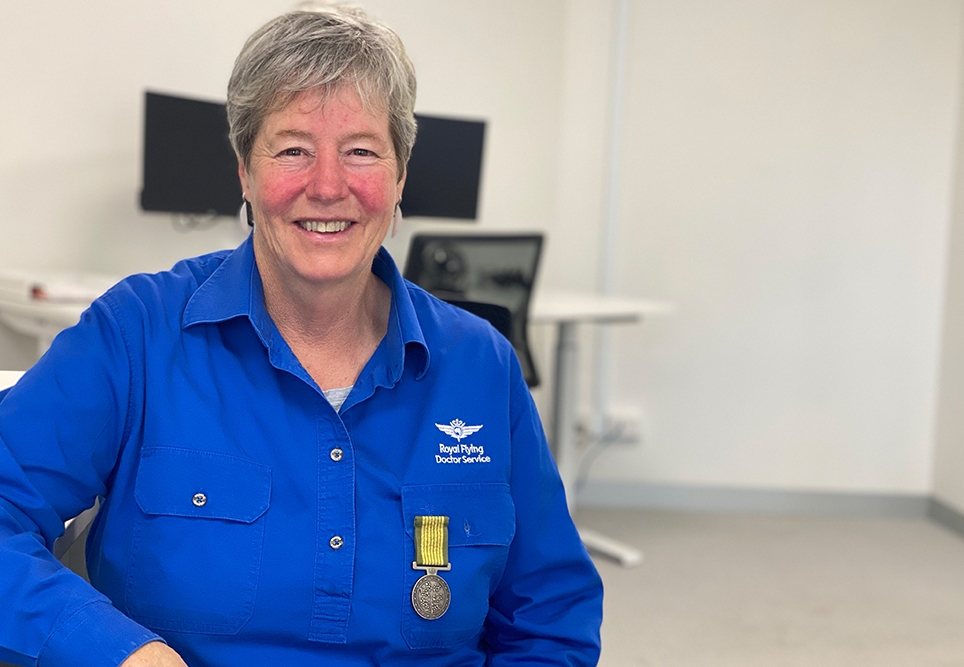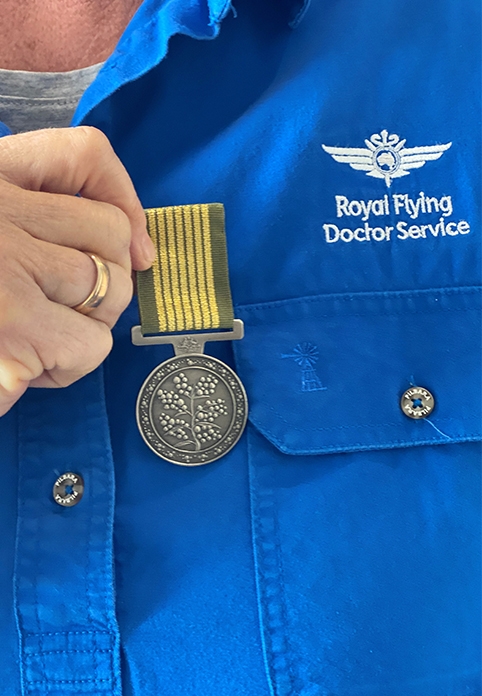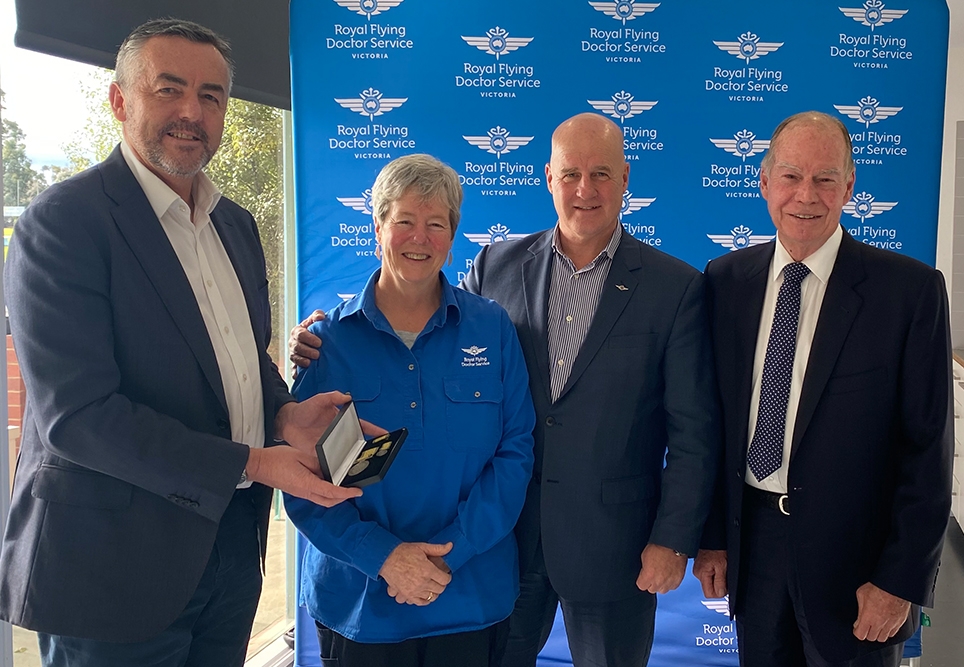This site may not work properly using older versions of Edge and Internet Explorer. You should upgrade your browser to the latest Chrome, Firefox, Edge, Safari, or any other modern browser of your choice. Click here for more information.
Your Stories
This is where we tell your stories, cover topical issues and promote meaningful initiatives.
Post-disaster mental health support
Cath Walker, Senior Psychologist with the CRANAplus Bush Support Line, has this June been awarded a National Emergency Medal for her work in Mallacoota, Victoria following the devastating Black Summer bushfires of 2019/2020.
“It’s wonderful that the importance of mental health support has been recognised with this award,” says Cath.
“I would say the mental and physical health connection has come a long way since I started nursing in the 80s.
“As psychologists, we can’t stop the fires, but, working with first responders and locals in times of disaster, we can help prevent people from being unwell with trauma-related effects over the following months and years.”
Cath has an extensive background in disaster, trauma and community recovery work, Mental Health First Aid and treating PTSD. She was on holiday from her job with the Queensland Royal Flying Doctor Service (RFDS) when the Black Summer bushfires began to impact East Gippsland in Victoria.
“I saw what was coming and thought about the different experiences I’d had in cyclones, floods and fires,” says Cath, who hails from Gippsland.
“I didn’t know if it was out of place or not, but I thought I’ll just ring and ask if I could help out, particularly with the aftermath.”
With her experience working in disaster zones including the Queensland floods just nine months earlier, Cath’s offer of help was snapped up and she was soon on a Royal Australian Air Force Hercules, landing in Mallacoota amongst devastation in the little township.
“My work from the start in Mallacoota was not in a clinic, but in the community, perhaps at the pub having dinner, having a coffee, being approachable and accessible, just as we do as members of the community – I offered support,” she says.
“The first psychological assistance starts with informal chatting and even more importantly, with listening. While it’s important to show empathy, it’s important to look for those signs from people who might be in trouble and who could use extra professional help.
“In those first weeks, people would often say ‘I think I’m going crazy,’ and I’d quickly assure them that they weren’t going crazy – I’d tell them, ‘This is not normal, it’s not your normal’,” she says.
“I am experienced in identifying the moments when it’s important to say, ‘How are you going?’ and to recognise the warning signs. If they’re not acknowledged at the time, they may surface months or years later.”
While supporting the community, it was tempting to keep on keeping on, but she made an effort to get breaks from work: “Even health workers need some rest and recovery.”
During the weeks while in Mallacoota, Cath helped establish the Bushfire Recovery program which is still delivered by RFDS Victoria and Relationships Australia Victoria. The program has proven to be invaluable for residents across the Gippsland region as they work through the lasting impacts of the 2019/2020 bushfires.
“I saw the signs of PTSD in the community,” Cath says. “I always knew recovery, for many of the local community members and emergency services workers dealing with those traumatic conditions, would be a long road.
“So many people are still there, dealing with the outcomes. Others have moved on, but the effects of this kind of work affects people differently, and I urge anyone to be aware of their feelings and reactions.”
Cath, who accepted the medal given in recognition of her dedication and willingness to offer help, prefers to see this award as a wonderful recognition of mental health as an important aspect of the post-disaster response, one deserved by many thousands.
Over the last couple of years, Cath has been writing and delivering online and face-to-face workshops for CRANAplus Mental Health and Wellbeing, on issues such as ‘How to assist yourself and others with the effects of stress and trauma’. She has now also taken on a part-time role with the team of psychologists working for the Bush Support Line (1800 805 391).
“This is such a good service and I urge anyone who has felt the effects of a traumatic situation they have found themselves in, to put their hand up and say, ‘I’d like to talk to someone’, or ‘I think I need a bit of help,” she says.
Learn more about CRANAplus’ Mental Health and Wellbeing service.


